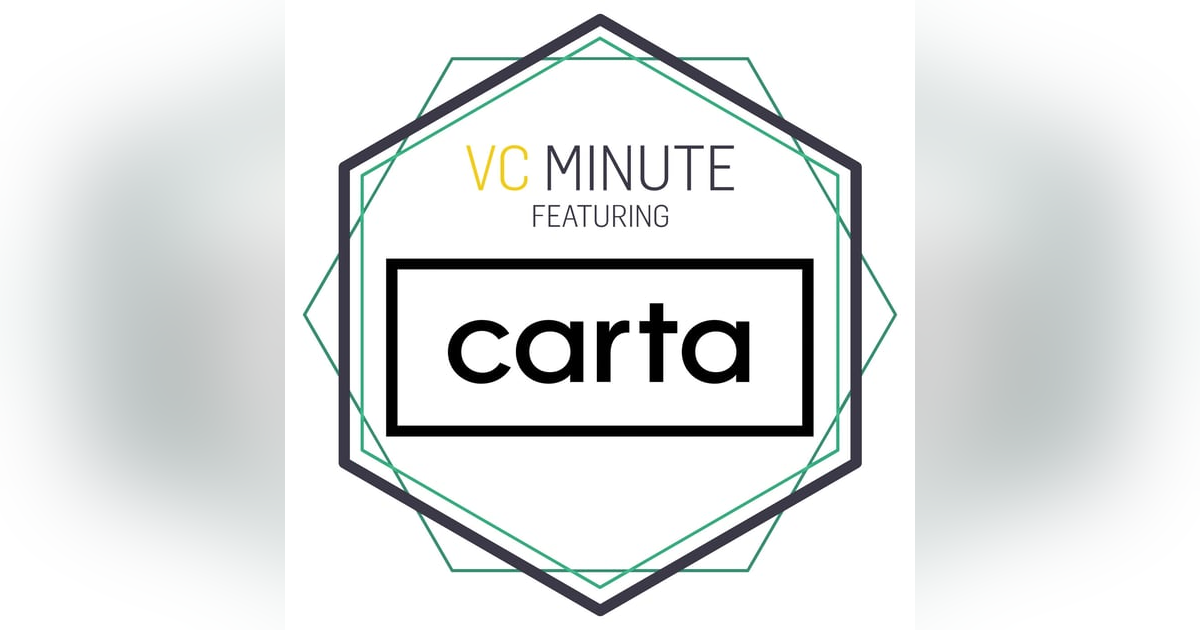155. Founders Beware of Deal Structure and Stacking SAFEs feat. Peter Walker, Head of Insights @ Carta

As fundraising constricts, investor-friendly terms come out. Understand the effect these terms have on you and your company, as well as the effects of stacking SAFEs.
Here is the FREE Carta SAFE & Convertible Note calculator:
https://carta.com/blog/safe-and-convertible-note-calculator/
About Carta
Carta builds infrastructure for tomorrow's innovators. Founders can manage their equity, issue options, and pay fairly using Carta Cap Table and Compensation tools. You can get a weekly peek into data from 38,000 startups across the world by subscribing to our Data Minute newsletter.
About SpringTime Ventures
SpringTime Ventures seeds high-growth startups in healthcare, fintech, logistics, and marketplace businesses. We look for founders with domain expertise, forging a path with a truly transformative technology. We only invest in software-based businesses in the USA. We bring a people-focused approach, work quickly, and reach conviction independently. Our initial check size is $600k. You can learn more about us and our approach.
About Rich Maloy
Rich’s mission is to rebuild the American dream through entrepreneurship. He believes technology gives all people the opportunity to grow, learn and earn. He is a Managing Partner at SpringTime Ventures and the host of the VC Minute podcast. With prior careers in finance and sales, he's been focused on the startup ecosystem for over a dozen years. He's a father of two young children and loves sci-fi, skiing, and video games.
Next topic that comes up that I think early stage founders, in particular ones that for whom this is their first company, might find really interesting, and that is deal structure or deal terms within a term sheet. If you look back to 2021 on Carta there are a lot of terms that you could say are more investor friendly or more difficult for a founder to accept. Some of those might be liquidation preferences. The standard liquidation preference is 1X, but as times get worse, you often see 2X or 3X liquidation preferences. Essentially this just means that the venture capitalist is going to get more preference if they're on an eventual exit than the founders of the common stock. There's other deal terms that matter, like, are there participating, preferred stock, is there cumulative dividends, et cetera. But again, back in 2021, these were not a major part of negotiations. In 2023, they've come roaring back. In Carta, about 7% of deals had participating Preferred stock at the beginning of 2022. About 15% of deals have them at the beginning of 2023. So that is over a hundred percent jump. It's becoming much more common. Anti-dilution provisions are a really important point that founders should take note of. You don't always accept the term sheet with the highest valuation. And that could be for a number of different reasons. Perhaps it's because you have an anti-dilution provision that actually sets you up for less dilution when this new round closes from a different VC. First time founders, if you are encountering a term sheet with a lot of clauses that you're not understanding or you're not sure that this is going to set you up for the right amount of dilution in your business, definitely speak to your lawyers, speak to other people that you're in touch with because deal terms and deal structure is something that is very much back on the menu in a way that it wasn't in prior years. There's a lot of different advice and strategies out there about raising multiple different SAFEs. You can raise a SAFE at a couple of key terms on that SAFE. One is the valuation cap and the other is a discount. So if you say raise from some friends and family, maybe you raise a hundred thousand dollars from the people who are closest to you and you do so on a 5 million cap post money SAFE. Great. Your company's going along. Maybe you got an MVP now, or a prototype or whatever. And then you realize you're gonna need some more cash. So you go out to other investors, maybe some more classically defined angel investors, and you raise another$500,000 on a 10 million valuation cap SAFE. So now you've raised two SAFEs, but for different valuation caps. When the time comes to raise your first priced equity round your seed round, Those investors will convert into the seed round at different rates. They'll own different percentages of the business. And what we find is that a lot of times there will be founders who raise a lot of different SAFEs. They keep raising the SAFE valuation cap by a little bit as they go up and up and up. you do that three or four times before you raise a, a seed round and you get to the seed round and you, as the founder, own less of your business than you intended to because you weren't actually calculating the dilution implied by those SAFEs. There's great tools on Carta that can help you calculate that. But the overall message is just be really aware that taking money on a safe or a convertible note is not free capital. It will convert into equity once you raise that and when they do so, you don't want to be left holding less of your company than than you expected.












